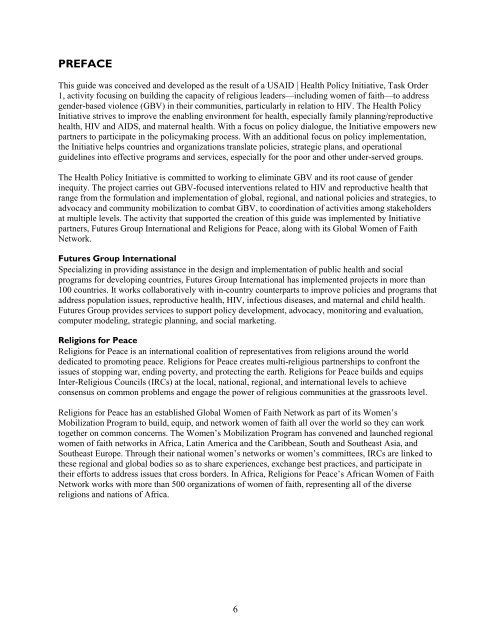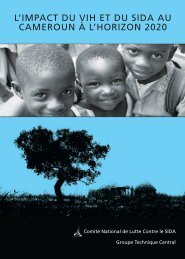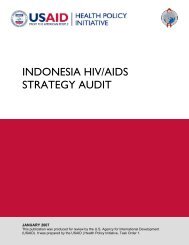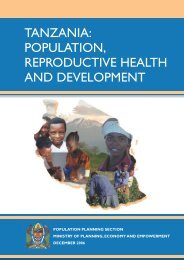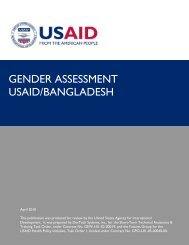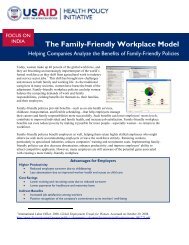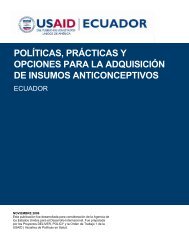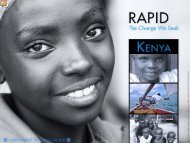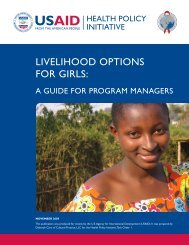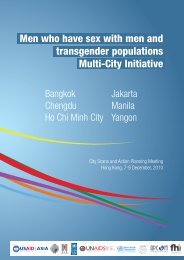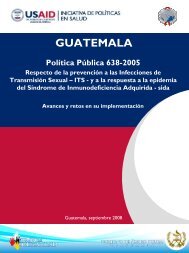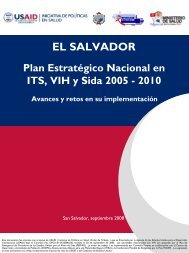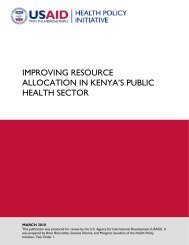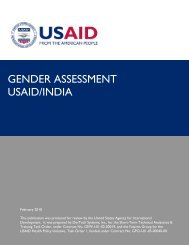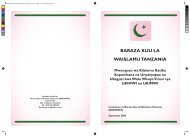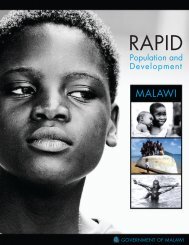A Call to Act - Health Policy Initiative
A Call to Act - Health Policy Initiative
A Call to Act - Health Policy Initiative
You also want an ePaper? Increase the reach of your titles
YUMPU automatically turns print PDFs into web optimized ePapers that Google loves.
PREFACE<br />
This guide was conceived and developed as the result of a USAID | <strong>Health</strong> <strong>Policy</strong> <strong>Initiative</strong>, Task Order<br />
1, activity focusing on building the capacity of religious leaders—including women of faith—<strong>to</strong> address<br />
gender-based violence (GBV) in their communities, particularly in relation <strong>to</strong> HIV. The <strong>Health</strong> <strong>Policy</strong><br />
<strong>Initiative</strong> strives <strong>to</strong> improve the enabling environment for health, especially family planning/reproductive<br />
health, HIV and AIDS, and maternal health. With a focus on policy dialogue, the <strong>Initiative</strong> empowers new<br />
partners <strong>to</strong> participate in the policymaking process. With an additional focus on policy implementation,<br />
the <strong>Initiative</strong> helps countries and organizations translate policies, strategic plans, and operational<br />
guidelines in<strong>to</strong> effective programs and services, especially for the poor and other under-served groups.<br />
The <strong>Health</strong> <strong>Policy</strong> <strong>Initiative</strong> is committed <strong>to</strong> working <strong>to</strong> eliminate GBV and its root cause of gender<br />
inequity. The project carries out GBV-focused interventions related <strong>to</strong> HIV and reproductive health that<br />
range from the formulation and implementation of global, regional, and national policies and strategies, <strong>to</strong><br />
advocacy and community mobilization <strong>to</strong> combat GBV, <strong>to</strong> coordination of activities among stakeholders<br />
at multiple levels. The activity that supported the creation of this guide was implemented by <strong>Initiative</strong><br />
partners, Futures Group International and Religions for Peace, along with its Global Women of Faith<br />
Network.<br />
Futures Group International<br />
Specializing in providing assistance in the design and implementation of public health and social<br />
programs for developing countries, Futures Group International has implemented projects in more than<br />
100 countries. It works collaboratively with in-country counterparts <strong>to</strong> improve policies and programs that<br />
address population issues, reproductive health, HIV, infectious diseases, and maternal and child health.<br />
Futures Group provides services <strong>to</strong> support policy development, advocacy, moni<strong>to</strong>ring and evaluation,<br />
computer modeling, strategic planning, and social marketing.<br />
Religions for Peace<br />
Religions for Peace is an international coalition of representatives from religions around the world<br />
dedicated <strong>to</strong> promoting peace. Religions for Peace creates multi-religious partnerships <strong>to</strong> confront the<br />
issues of s<strong>to</strong>pping war, ending poverty, and protecting the earth. Religions for Peace builds and equips<br />
Inter-Religious Councils (IRCs) at the local, national, regional, and international levels <strong>to</strong> achieve<br />
consensus on common problems and engage the power of religious communities at the grassroots level.<br />
Religions for Peace has an established Global Women of Faith Network as part of its Women’s<br />
Mobilization Program <strong>to</strong> build, equip, and network women of faith all over the world so they can work<br />
<strong>to</strong>gether on common concerns. The Women’s Mobilization Program has convened and launched regional<br />
women of faith networks in Africa, Latin America and the Caribbean, South and Southeast Asia, and<br />
Southeast Europe. Through their national women’s networks or women’s committees, IRCs are linked <strong>to</strong><br />
these regional and global bodies so as <strong>to</strong> share experiences, exchange best practices, and participate in<br />
their efforts <strong>to</strong> address issues that cross borders. In Africa, Religions for Peace’s African Women of Faith<br />
Network works with more than 500 organizations of women of faith, representing all of the diverse<br />
religions and nations of Africa.<br />
6


